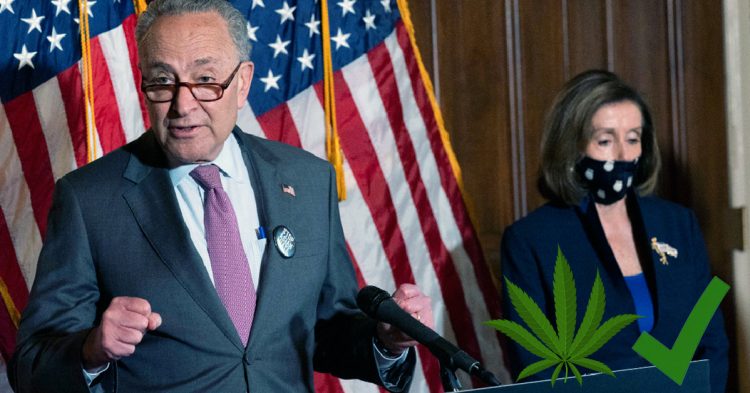This week marks a significant stride in cannabis reform as the U.S. Senate reintroduced the CAO Act Cannabis Legalization initiative. Led by Senate Majority Leader Chuck Schumer (NY) with Senators Ron Wyden (OR) and Cory Booker (NJ), this proposal aims to overturn the federal prohibition of cannabis and align government policy with public opinion.
“The CAO Act Cannabis Legalization represents a crucial step towards updating federal laws to reflect the current societal views on cannabis. By introducing this legislation, we aim to eliminate federal cannabis restrictions, ensuring safety, fostering research, protecting workers’ rights, and advancing corrective justice. We are addressing the longstanding issue of over-criminalization, especially impacting communities of color. This bill not only symbolizes growing support but also my commitment to driving this change forward.” — Sen. Schumer, from a press release
First introduced in 2022, the CAO Act proposes substantial changes to how cannabis is managed federally. It plans to deschedule cannabis, automatically expunge non-violent federal cannabis offenses, and introduce grant programs that support housing and economic development for those adversely affected by previous cannabis prohibitions. Moreover, the Act intends to fund these initiatives through a new tax regime applied to federally regulated cannabis products.
Senator Cory Booker emphasized the importance of these reforms, “These logical and necessary changes promise to create a fairer criminal justice system and enhance public safety across the board.”
In addition to these legislative efforts, there was a recent development from the DEA, which reported plans to reclassify cannabis from Schedule I to Schedule III under the Controlled Substances Act, further facilitating research and easing regulations.
The momentum for cannabis legalization is increasing, reflecting a broader acceptance and understanding of its benefits and the inequities of past laws. The CAO Act Cannabis Legalization not only seeks to rectify past injustices but also to lay down a framework for a safe and equitable cannabis industry in the future.
CHECK THIS: Big Tobacco’s Battle: Are Pre-Rolls and Cones at Risk?









